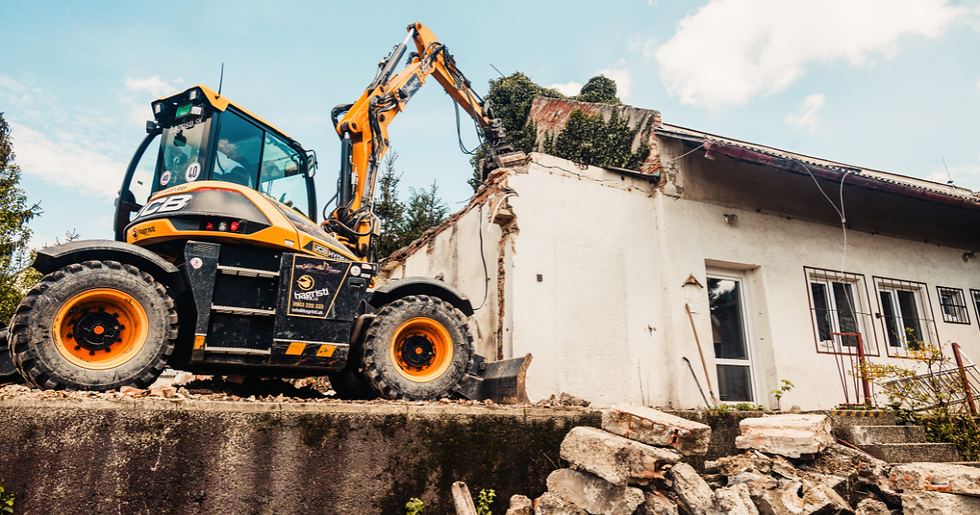Site Preparation for Construction: What Every Developer Needs to Know
- Adam Bahrami

- Sep 8, 2025
- 3 min read
Every successful building project starts long before the first brick is laid. Site preparation is the foundation of construction success. Done right, it ensures a stable, safe, and efficient work environment that prevents costly delays and structural problems down the track. Done poorly, it can lead to foundation cracks, drainage issues, budget blowouts, and even complete project failure.
At OwnerDeveloper, we’ve seen first-hand that smart site preparation isn’t just about clearing land. It’s about testing, planning, demolishing, excavating, grading, and compacting with precision. Whether you’re building a duplex, townhouse, or a large-scale development, investing time and expertise into site preparation is one of the most important steps you’ll take.
Key Factors That Influence Site Preparation
1. Project Scope
A small residential extension may only need basic clearing and levelling. A multi-dwelling development, however, requires:
Detailed soil testing
Structural surveys
Utility checks
Heavy excavation and compaction
The scale of your project will determine both costs and timeframes for site preparation.
2. Location & Topography
Not all land is created equal. Site preparation depends on:
Slope and drainage patterns
Depth of the water table
Nearby structures and vegetation
Environmental or zoning restrictions
For example, sites near floodplains or bushfire zones in NSW need extra precautions before excavation begins.

3. Soil Type
Soil is the hidden foundation of your project. Testing determines its load-bearing capacity, stability, and moisture levels. Clay-heavy soils may require stabilisation, while sandy soils may need compaction or reinforcement before they can safely support a building.
Step-by-Step Site Preparation Process
Step 1 – Site Evaluation & Soil Testing
Before any machinery arrives, geotechnical testing is carried out to measure soil strength and bearing capacity. Surveys also identify underground obstructions such as utilities, rock, or contamination. Skipping this step can lead to foundation failures later on.
Step 2 – Clearing & Demolition
Remove debris, rocks, and vegetation.
Demolish any existing structures safely, ensuring asbestos or hazardous materials are identified and disposed of properly.
Ensure access routes for heavy equipment are established.

Step 3 – Excavation & Underground Mapping
Excavators, trenchers, or bulldozers are used to dig foundations or utility trenches.
Underground utilities (gas, water, electrical) are mapped and avoided.
Bedrock may require blasting or specialist equipment.
Step 4 – Grading & Levelling
Uneven surfaces are levelled using cut-and-fill or split-level techniques.
Grading ensures proper surface drainage to prevent flooding or erosion later.
Step 5 – Soil Compaction
Compaction creates a firm, stable base for the foundation.
Rollers or vibratory compactors reduce air pockets and moisture, ensuring the soil won’t shift once construction begins.
Safety, Compliance & Environmental Considerations
Safety protocols: Workers must wear PPE, sites must be fenced, and drainage channels installed to prevent water hazards.
Environmental compliance: Sensitive vegetation and ecosystems must be protected. Developers can face heavy fines for illegal clearing.
Utility protection: Damaging underground services can cause delays, legal issues, and safety risks.
How Much Does Site Preparation Cost in Australia?
Costs vary widely depending on project size, soil conditions, and location:
Small home site prep on flat land: from $2,500
Larger commercial site on flat terrain: $10,000 – $12,000
Hilly or complex terrain: $20,000+
Excavation costs alone range between $50–$200 per cubic metre of soil removed. It’s always best to get a site-specific quote based on soil testing and design requirements.
Site Preparation FAQs
What is site preparation?
It’s the process of readying land for construction, including soil testing, clearing, excavation, grading, and compaction.
Why is site preparation important?
It prevents structural issues, improves safety, ensures compliance, and protects your long-term investment.
Can I do site preparation myself?
No, site prep requires heavy machinery, engineering expertise, and strict compliance with local regulations. Always use licensed professionals.
Final Thoughts: Start Strong, Build Smart
Site preparation is the make-or-break stage of every development project. Skipping steps or cutting corners leads to delays, cost blowouts, and even structural failures. At OwnerDeveloper, we specialise in guiding developers, homeowners, and investors through every stage, from feasibility and approvals to site prep and final construction.
📲 Ready to start your project the right way? Book a free consultation with our team today and let’s make sure your site is safe, stable, and set for success.





Comments